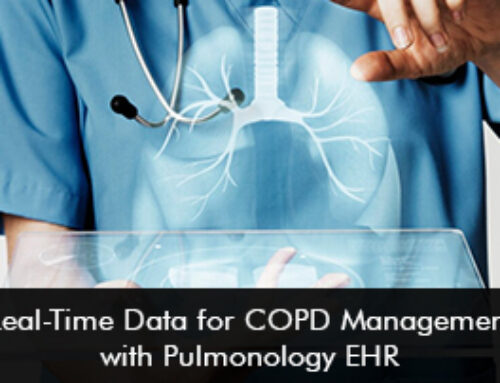In the rapidly evolving healthcare technology environment, electronic health record (EHR) systems are widely recognized as essential tools for accelerating patient care, improving clinical processes, and improving overall healthcare outcomes. Despite the fact that general-purpose EHR software solutions offer a wide variety of capabilities, the need for specialty-specific EMR/EHR systems has grown. These customized solutions address the unique needs and intricacies of various medical disciplines, such as Dermatology, Cardiology, Oncology, and Paediatrics, to mention a few. As a result, healthcare practitioners may provide more effective and precise therapy.
The Need for Specialty-Specific EHRs
The healthcare sector is large and complex, requiring various workflow, data management, and documentation methods for various medical specialties. Electronic Health Record systems that take a one-size-fits-all approach may not be able to adequately meet the unique needs of doctors, specialists, and caregivers. Specialty-specific EHR/EMR software solutions bridge this gap by offering a condensed set of tools and capabilities that are targeted to the unique requirements of particular medical disciplines.
Benefits of Specialty-Specific EHRs
Efficiency:
Tailored templates and workflows reduce data entry time and ensure accurate documentation specific to each specialty.
Clinical Decision Support:
Specialty-specific EHRs provide evidence-based guidelines and recommendations, aiding in accurate diagnoses and treatment decisions.
Patient Engagement:
Personalized patient education materials are made possible by EHRs with specialty-specific capabilities, improving patient comprehension and adherence to treatment programs.
Billing and Coding:
Specialty-specific EHRs simplify billing and coding processes by automating procedure and diagnosis coding based on specialty-specific standards.
Pediatric Specialty EHR:
For pediatricians, EHR systems designed with child-centric features are essential. To name a few:
Growth Tracking:
Provides tools to monitor a child’s physical and developmental growth, helping healthcare professionals identify issues early.
Specialized Templates:
Offers pre-designed templates for common pediatric assessments, facilitating efficient and accurate documentation.
Pediatric Medication Safety:
Ensures the safe administration of medications to children through precise dosing and allergy alerts.
Care Coordination:
Supports collaboration among pediatric specialists, primary care providers, and parents to deliver well-coordinated and patient-centered care.
Top 3 EHRS for Paediatricians:
Office Practicum Software, athenahealth EMR Software & AdvancedMD EMR Software
Cardiology Specialty EHR
Cardiologists require EHRs equipped with tools like:
Cardiac-Specific Documentation:
Tailored for cardiology practices, it includes templates and features for detailed cardiac patient history, diagnostics, and treatments.
ECG Integration:
Seamlessly integrates with ECG machines and devices, enabling real-time monitoring and interpretation of cardiac rhythms.
Cardiac Imaging:
Supports storage and retrieval of cardiac images like echocardiograms, angiograms, and stress tests for comprehensive patient evaluation.
Risk Assessment Tools:
Offers risk assessment calculators and predictive models for cardiovascular disease, aiding in treatment planning and prevention.
Compliance and Reporting:
Helps cardiology practices adhere to industry standards and regulations, and generates reports for quality improvement initiatives and research.
Top 3 EHRs for Cardiology:
PrognoCIS EMR Software, Epic EMR Software and NextGen EHR Software.
Oncology Specialty EHR
Oncology-specific EHRs streamline the complex journey of cancer patients. They offer modules for:
Cancer-Specific Documentation:
Designed to manage the complex and specialized data related to oncology patients, including tumor staging, treatment plans, and chemotherapy regimens.
Oncology Protocols:
Provides access to evidence-based treatment protocols and guidelines for various types and stages of cancer.
Chemotherapy Management:
Facilitates precise tracking and dosing of chemotherapy drugs, along with managing side effects and monitoring patient response.
Integrated Imaging:
Allows seamless integration of radiology and pathology reports, as well as storage of medical images like CT scans and MRIs.
Clinical Trials Support:
Helps oncology practices manage patient enrollment in clinical trials, track trial-related data, and report on trial outcomes for research and quality improvement purposes.
Top 3 Oncology EHRs to consider are:
Mckesson Practice Choice EHR Software, CureMD EHR Software & iKnowMed Generation 2 EHR Software By McKesson.
Orthopedic Specialty EHR
Orthopedic EHRs focus on Orthopedic-Specific Templates: Offers templates tailored to orthopedic exams, procedures, and conditions, streamlining documentation for musculoskeletal health.
Imaging Integration:
Seamlessly integrates with imaging systems like X-rays and MRIs, allowing orthopedists to view and analyze patient images within the EHR.
Implant and Prosthetic Tracking:
Enables tracking of implants, prosthetics, and orthopedic devices used in patient care, including implant details and expiration dates.
Outcome Measures:
Provides tools for tracking patient outcomes, range of motion, pain levels, and functional assessments to evaluate treatment effectiveness.
Surgical Planning:
Supports orthopedic surgeons with preoperative planning, including implant selection and surgical technique documentation, enhancing surgical precision and patient safety.
Top 3 Orthopaedic EHRs:
Modernizing Medicine Healthcare IT Suite, drchrono EMR Software and NextGen EHR Software.
Dermatology Specialty EHR
Dermatologists benefit from EHRs featuring:
Skin Condition Documentation:
Specialized templates and features for documenting and tracking various dermatological conditions, such as acne, eczema, and skin cancer.
Image and Photo Integration:
Allows dermatologists to capture and store high-resolution images of skin lesions and conditions, aiding in diagnosis and monitoring over time.
Mole Mapping:
Supports mole mapping and tracking for early detection of skin cancer, with tools for measuring and assessing changes in moles.
Cosmetic Procedures Management:
Manages cosmetic procedures, such as Botox injections or laser treatments, including appointment scheduling and post-treatment care.
Integration with Pathology Labs:
Facilitates communication with pathology labs for quick analysis of skin biopsy samples and efficient reporting of results.
Top 3 Dermatology EHRs:
Modernizing Medicine Healthcare IT Suite, EZDERM EHR Software and athenahealth EMR Software.
Choosing the Right EHR Solution
The above mentioned EHR Specialties are just a few to name. There are numerous categories in the healthcare system and there is a specialty specific EHR for each of that category, all you have to do is to choose the right EHR/EMR. Selecting the ideal specialty-specific EHR requires thorough evaluation. Consider factors such as vendor reputation, user reviews, scalability, integration capabilities, and compliance with regulatory standards (e.g., HIPAA). A solution that aligns with the specific needs of the specialty, offers seamless integration, and provides robust customer support is crucial. And you can find all of this information at EMRSystems.net







